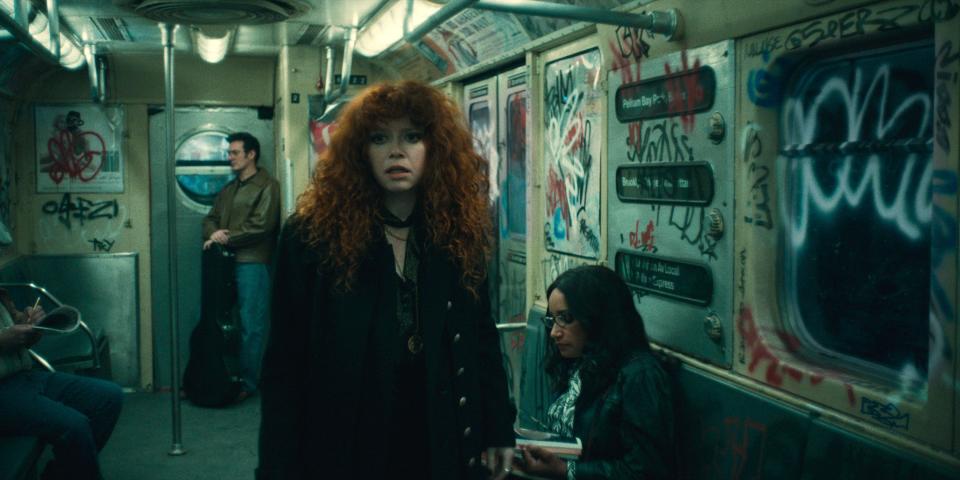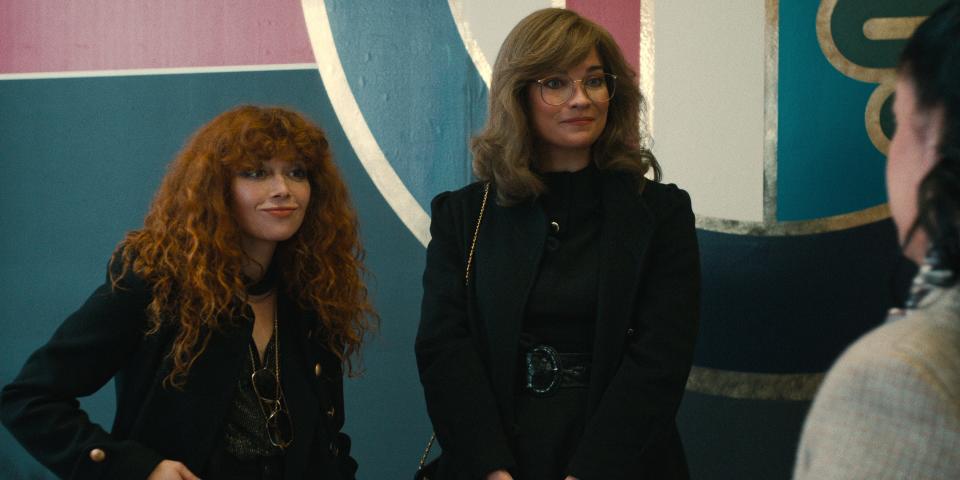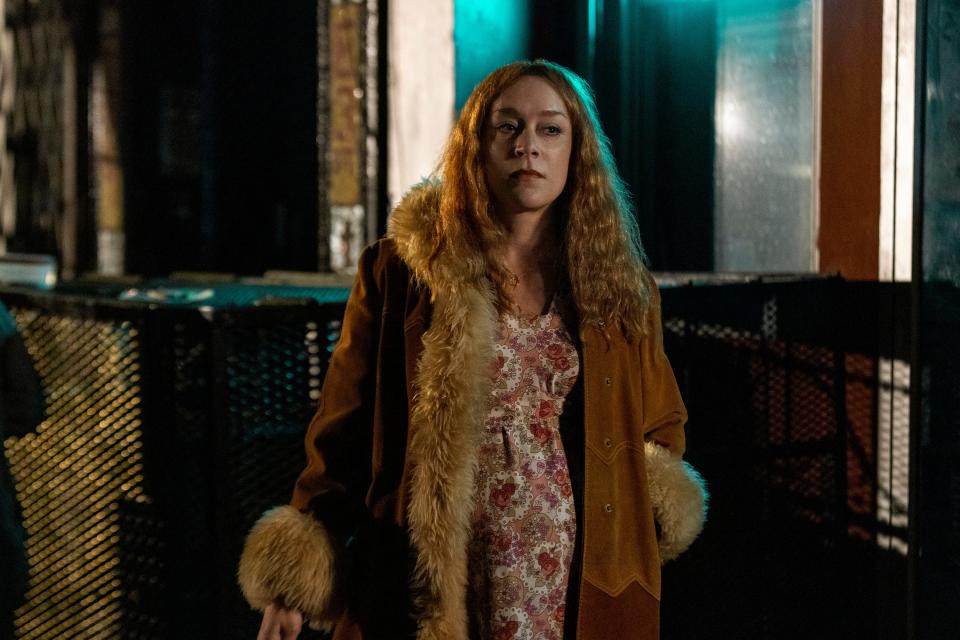Review: I was wrong about 'Russian Doll.' Here's why you should watch Season 2.
I have to admit, I was wrong about "Russian Doll."
The first few episodes of the dark supernatural comedy created by Natasha Lyonne, Amy Poehler and Leslye Headland, which premiered in 2019, didn't grab me in the same way it grabbed so many other critics and viewers. I was a little bored and a little turned off by the series' sensibility, which didn't totally line up with my taste.
But when Netflix announced the "Groundhog Day"-like series – in which Lyonne's Nadia and a man she meets named Alan (Charlie Barnett) live the same night over and over again, dying at the end of each loop – would get a second season, I figured I had to give it a second chance. And like any mature adult (Nadia at the end of Season 1, rather than the beginning), I can admit when I'm wrong. "Doll" was as good as all the other people said it was. I came to appreciate its unique tone, deeply introspective scripts and the comedy of Nadia trying to walk down a flight of stairs without dying.

After revisiting (and loving) the first season, I worried the second season (now streaming, ★★★? out of four) might not live up to what felt like a complete, full-circle story. Great shows have been tarnished by ill-thought second seasons like HBO's "Big Little Lies." "Doll" didn't really need to come back, but Lyonne and the writers found a way to advance the story without ruining it. Another supernatural occurrence leads Nadia and Alan to question their lives and identities, but this time it's not a time loop – it's time travel.
2022 TV premieres: From 'Stranger Things' and 'Grace and Frankie' to 'The Flight Attendant'
Four years after the hellish loops Nadia and Alan endured, Nadia hitches a ride on a subway car that transports her back to 1982 and into the body of her mother, Nora (Chloe Sevigny), who's pregnant with baby Nadia. Alan soon discovers that he can travel even further afield on the subway: to his grandmother's body in East Berlin in 1962.

Nadia sees this as an opportunity to change the past, undo her mother's biggest mistake (losing the family's money) and fix everything that was wrong with her unhappy childhood. She enlists the younger version of her surrogate mother figure, Ruth (Annie Murphy, "Schitt's Creek") to help in her quest. But anyone who has seen a time-travel movie, as Alan astutely points out to his friend, knows that changing the past doesn't really work. What Nadia gets from it isn't really the gold coins her mother foolishly lost but a startling new perspective on the woman Nadia hated so much.
More: 'Pachinko' to 'Gaslit': The 10 best new TV shows to watch in spring 2022
This time-travel season is successful because the show leans into the new narrative so much it's almost like Season 1 didn't exist. We can forget about that adventure and easily take the subway rides to the past with Nadia and Alan. "Doll" is almost like a new series, maintaining its tone and quality even as the plot runs away to Eastern Europe. It's a strong reinvention.
Lyonne and the writers have foreshadowed the new season with care and diligence, leaving some elements comfortingly predictable. But there are twists and curveballs, existential questions and strange occurrences. There's also a fascinating acting study for Lyonne, playing Nadia pretending to be Nora, who's affected by Nora's schizophrenia. It's all as meta and layered as, say, a Russian doll.

Trying to recapture old glory is often a fool's errand, especially in Hollywood, where sequels, remakes and remakes of remakes wring every good idea dry. But "Doll" is the rare show to come up with two seasons worth of good ideas. I almost missed out on both, but I'm glad I gave it a second try.
Nadia can certainly relate to a do-over.
This article originally appeared on USA TODAY: 'Russian Doll' Season 2 review: A superb adventure
